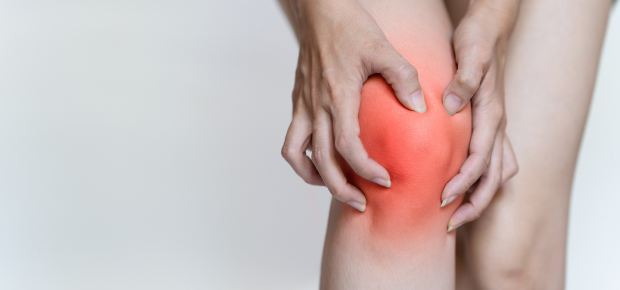
Living with arthritis can make even the simplest daily activities challenging. The stiffness, pain, and reduced mobility affect not just physical capabilities but also emotional wellbeing.
While conventional treatments certainly have their place, the natural approach of massage therapy offers significant benefits for many arthritis sufferers—without the side effects often associated with medications.
Why massage works for arthritis
When arthritis flares up, feeling better becomes the top priority. Massage therapy offers a dual benefit—it not only helps relieve pain but also improves your overall sense of wellbeing. But how exactly does it work?
Massage triggers the release of endorphins, our body's natural "happy hormones" and pain relievers. Simply put, when your body produces more endorphins, you experience less pain and feel better mentally. You don't need to rely solely on other treatments; sometimes a smile and regular massage can provide faster relief than many alternatives.
According to Arthritis Australia, while massage won't cure arthritis or reduce inflammation or joint damage, research indicates it can provide short-term pain relief, improve flexibility, and reduce muscle tension around affected joints.
A recent systematic review published in the Journal of General Internal Medicine found that massage therapy shows potential benefits for those with knee osteoarthritis specifically.
Benefits of massage for arthritis management
Massage therapy offers multiple benefits when incorporated into your arthritis treatment plan:
- Improved range of motion and flexibility – Gentle manipulation helps loosen stiff joints and muscles
- Enhanced blood circulation – Better blood flow delivers more nutrients to troubled areas
- Reduced muscle spasms – Relaxing contracted muscles that may be pulling on painful joints
- Decreased joint pain and stiffness – Direct relief where you need it most
- Better sleep quality – Less pain means more restful nights
- Lower stress levels – The relaxation response counteracts the physical effects of stress
- Natural pain relief – Triggering endorphin release without medication side effects
With these diverse benefits in mind, it's clear why massage has become such a valuable tool for arthritis management. To maximize these benefits, let's explore the specific techniques that work best for different types of arthritis and affected areas of the body.
Arthritis comes in many forms, each affecting the body differently. To understand which massage techniques might work best for your specific condition, check out our guide to different types of arthritis and their unique characteristics.
Effective massage techniques for different types of arthritis
Arthritis affects everyone differently, and various massage techniques can help different arthritic conditions. According to a systematic review by Nelson and Churilla (2017) published in the Journal of Bodywork and Movement Therapies, massage therapy showed promising results as a complementary treatment for both osteoarthritis and rheumatoid arthritis.
Some techniques you can do yourself, while others require a professional therapist's expertise.
Diy techniques you can try at home
Between professional treatments, these simple self-massage techniques can provide immediate relief right at home. They're perfect for maintaining benefits and managing discomfort during flare-ups.
For wrist or small joint relief:
- Fill a basin with warm (not hot) water and soak your hand and wrist for 10 minutes
- Dry thoroughly and sit at a table so you're supported
- Rest the elbow and hand of the affected side on the table, palm down
- With the middle three fingers of your other hand, make slow, deep circles in the tissue across the entire area
- Turn your hand over and repeat on the other side
- Return to the first position and place your other hand flat on top of the sore wrist
- With your thumb under the sore wrist, gently push tissue up the forearm as though pushing up a sleeve to help drain fluid
- Finish by massaging your favourite cream into the area (optional: add a drop of ginger, peppermint or eucalyptus essential oil for enhanced effect)
Hand massage technique:
- Slowly massage one finger at a time, with or without oil
- Use the thumb and index finger of your other hand
- Make tiny circles to cover each finger thoroughly, starting at the fingertip and working toward the wrist
- Consider using a moisturiser with a drop of peppermint essential oil to finish
Foot massage for arthritis relief:
- Place a towel on the floor under a basin of warm water
- Add a handful of marbles or smooth pebbles to the basin for acupressure (optional: add 5 drops each of juniper and ginger essential oils dissolved in a tablespoon of milk)
- Soak your feet and gently roll them over the stones
- Move at your own pace and try to pick up the stones with your toes for extra mobility practice
- When finished, place your feet on the towel and pat dry
Professional massage techniques
When visiting a qualified massage therapist, you'll have access to specialized techniques that can significantly reduce arthritis pain and improve joint mobility. These therapies are delivered with the right pressure, duration, and focus to address your specific needs. Let's explore some of the most effective professional massage approaches for arthritis management.
1. Hot stone massage
This technique combines warm stones, heated oil and traditional massage movements. The heat penetrates deeply into tissues, providing exceptional relief for arthritis sufferers. The warmth helps increase blood flow while the weight of the stones provides gentle pressure that can reach deeper tissues without requiring excessive hand pressure from the therapist.
2. Trigger point therapy
Particularly helpful for rheumatoid arthritis, this technique targets knots in muscles that cause chronic pain. By applying sustained pressure to these trigger points, the therapist can help release the knot, making movement easier and reducing pain levels. Research from Discover Massage Australia shows it's especially beneficial for osteoarthritis in the knee.
3. Deep tissue massage
Working on deeper muscle layers, this technique addresses muscle pain and tension around arthritic joints. Various methods can be used, including:
- Cross fibre friction to stimulate muscle activity and circulation
- Muscle Energy Technique (MET) for treating osteoarthritis in fingers, toes, knees and lower back
- Myofascial release to reduce pain levels in joints affected by fibromyalgia or arthritis
4. Lymphatic drainage massage
This gentle technique reduces swelling by focusing on the lymphatic system. It improves lymph flow and stimulates synovial fluid production, which lubricates joints. It's particularly valuable for rheumatoid arthritis that affects multiple joints simultaneously.
5. Swedish massage
Beneficial for those with osteoarthritis in the back and joints, Swedish massage can significantly improve pain, alleviate muscle stiffness, boost energy levels, enhance sleep quality, and reduce feelings of depression. Its gentle, flowing strokes improve overall circulation and relaxation.
Finding the right massage therapist
When seeking professional massage therapy for arthritis, consider these factors:
- Check qualifications: Look for a licensed practitioner who specialises in a range of massage techniques.
- Verify experience: Ask if they have specific experience working with arthritis patients.
- Discuss your condition: Ensure they understand your specific type of arthritis and any medical treatments you're receiving.
- Professional membership: In Australia, check if they're registered with Massage & Myotherapy Australia or an equivalent organisation.
- Health fund coverage: Many Australian health funds provide rebates for remedial massage therapy if performed by registered practitioners.
According to Arthritis Australia, it's important to ensure your therapist has formal, accredited qualifications and adheres to a code of ethics. When choosing a massage therapist, specifically check that they have experience working with arthritis patients.
Ready to experience the benefits of massage for your arthritis symptoms? Find a qualified deep tissue massage therapist near you and take the first step toward natural pain relief today.
Communication is key
Before treatment, clearly communicate:
- Your diagnosed condition (there are many forms of arthritis, each with specific needs)
- Current medications and treatments
- Areas of particular pain or sensitivity
- Your comfort level during the massage (speak up if anything causes discomfort)
This open dialogue creates the foundation for effective treatment and helps your therapist customize their approach to your unique needs. While professional massage offers tremendous benefits, incorporating self-massage techniques between sessions can help maintain relief and progress.
Self-care between sessions
Professional treatments are valuable, but incorporating quick self-massage techniques between sessions can provide ongoing relief. Watch how your therapist works and ask for simple techniques you can do at home to maintain the benefits.
When to avoid massage
While massage is generally beneficial, it may not be appropriate when:
- Joints are acutely inflamed (always check with your doctor or rheumatologist)
- You have certain medical conditions that might be complicated by massage
- The area to be massaged has open wounds, rashes, or recent injuries
Being mindful of these precautions helps ensure that massage remains a safe and effective part of your arthritis management strategy. By working closely with both your healthcare providers and massage therapist, you can determine the optimal approach for your specific situation.
Wrapping up
Whether you're dealing with osteoarthritis, rheumatoid arthritis, or another form of the condition, massage therapy offers a natural complement to your treatment plan. From professional techniques to simple self-massage, this approach can provide significant relief from pain and stiffness while improving your quality of life.
A 2023 systematic review published in JAMA Network Open confirmed that massage therapy has shown moderate evidence of benefits for arthritis pain management, though more high-quality research is still needed for definitive conclusions.
By combining professional treatments with home techniques, you create a comprehensive approach to managing arthritis symptoms naturally. And best of all, massage gives you the power to take an active role in your pain management—providing comfort on demand when you need it most.
For more information on arthritis management strategies and to find a qualified massage therapist in your area, visit the Arthritis Australia website or check out other effective natural treatments for arthritis management at Discover Massage Australia.









